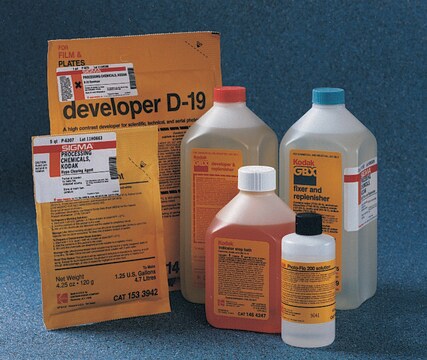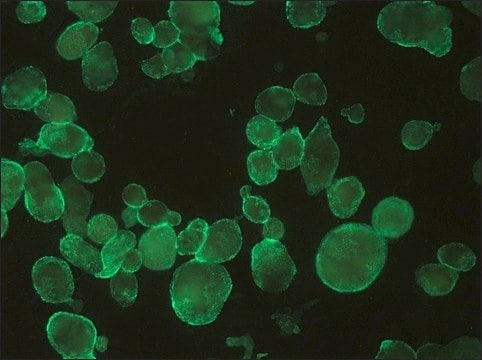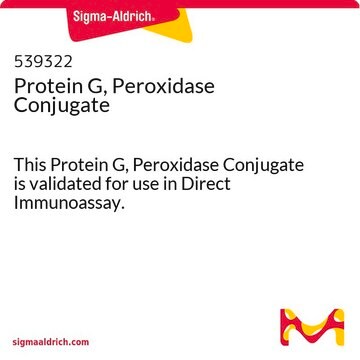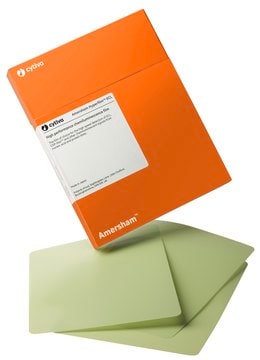AP127F
Goat Anti-Mouse IgG Antibody, Fc, FITC conjugate
Chemicon®, from goat
About This Item
Productos recomendados
origen biológico
goat
Nivel de calidad
conjugado
FITC conjugate
forma del anticuerpo
F(ab′)2 fragment of affinity isolated antibody
tipo de anticuerpo
secondary antibodies
clon
polyclonal
reactividad de especies
mouse
fabricante / nombre comercial
Chemicon®
técnicas
immunofluorescence: suitable
Condiciones de envío
wet ice
modificación del objetivo postraduccional
unmodified
Categorías relacionadas
Aplicación
Secondary & Control Antibodies
Fragment Specific Secondary Antibodies
Información legal
Cláusula de descargo de responsabilidad
Not finding the right product?
Try our Herramienta de selección de productos.
Frases de peligro
Consejos de prudencia
Clasificaciones de peligro
Aquatic Chronic 3
Código de clase de almacenamiento
11 - Combustible Solids
Clase de riesgo para el agua (WGK)
WGK 3
Certificados de análisis (COA)
Busque Certificados de análisis (COA) introduciendo el número de lote del producto. Los números de lote se encuentran en la etiqueta del producto después de las palabras «Lot» o «Batch»
¿Ya tiene este producto?
Encuentre la documentación para los productos que ha comprado recientemente en la Biblioteca de documentos.
Contenido relacionado
Step-by-step protocol for generating apical-out human gut organoids for microbiome, ADME/Tox, viral and gastrointestinal related disease research. See the complete organoid culture protocol.
Nuestro equipo de científicos tiene experiencia en todas las áreas de investigación: Ciencias de la vida, Ciencia de los materiales, Síntesis química, Cromatografía, Analítica y muchas otras.
Póngase en contacto con el Servicio técnico








